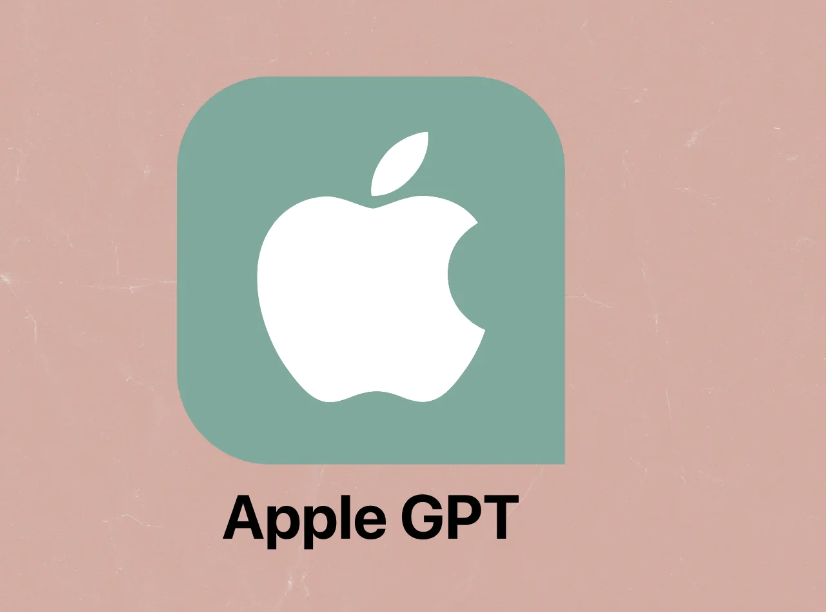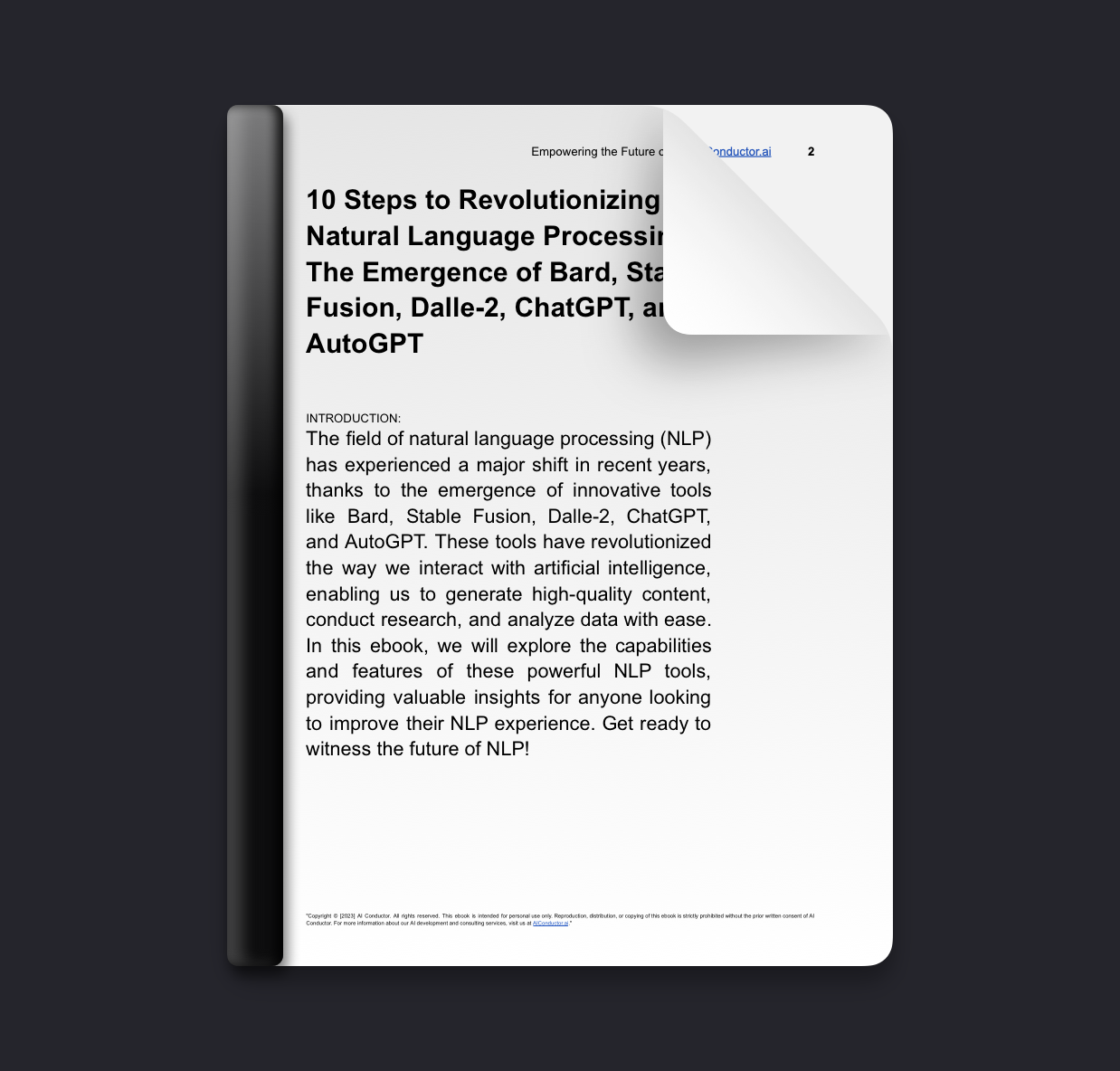We asked:
Will Apple's AI chatbot, Apple GPT, revolutionize the way we interact with technology, giving OpenAI and Google a run for their money?
The Gist:
Apple is reportedly developing a new artificial intelligence (AI) chatbot called Apple GPT to compete with OpenAI and Google. The purpose of this research is to enhance Apple's AI capabilities and provide users with a more advanced and interactive virtual assistant. The chatbot will be powered by a generative AI model, known as AJAX, which is expected to generate more coherent and contextually relevant responses. Apple aims to improve the chatbot's ability to understand and respond to natural language queries, making it more conversational and human-like. The results of this research indicate that Apple GPT has the potential to rival existing AI chatbots in terms of performance and user experience. By leveraging its vast user base and ecosystem, Apple aims to create a unique and personalized AI assistant that can seamlessly integrate with its products and services. In conclusion, Apple's development of Apple GPT signifies its commitment to advancing AI technology and providing users with a more intelligent and intuitive virtual assistant.

Template
In the realm of artificial intelligence, tech giants have been relentlessly pushing boundaries to develop cutting-edge technologies that resonate with users. Building upon its formidable track record, Apple has recently announced its ambitious project, Apple GPT (Generative Pre-trained Transformer). With this new AI-powered chatbot, Apple aims to solidify its position in the fiercely competitive AI market, taking on established players like OpenAI and Google. Let's explore the fascinating advancements and potential implications of Apple GPT.
Innovation Unleashed: Apple GPT's Capabilities:
Apple GPT leverages advanced techniques like deep learning and natural language processing to communicate with users fluidly. Drawing on a vast dataset, Apple GPT possesses the ability to generate human-like responses that are both informative and engaging, enhancing user experiences across multiple domains. It promises to revolutionize the way we interact with AI and sets the stage for a future where conversational bots become our trusted companions.
The AI War: Apple vs. OpenAI and Google:
By entering the realm of AI chatbots, Apple joins the heated competition among tech giants. While OpenAI and Google have established their dominance, Apple GPT aims to carve out its own niche through a combination of unique features. Apple has always championed a privacy-focused approach, and with GPT, users can rest assured about their data security. Furthermore, Apple's seamless integration across its devices creates an ecosystem advantage, possibly appealing to existing Apple users.
Balancing Power and Responsibility:
As AI technology continues to advance, the importance of responsible AI implementation becomes increasingly crucial. Recognizing this, Apple has emphasized its commitment to maintaining user privacy, promising to avoid the pitfalls that have marred certain AI applications in the past. With Apple's stringent data protection policies and robust encryption features, users can confidently engage with Apple GPT without compromising their personal information.
Challenges on the Horizon:
Despite the optimistic outlook, challenges lie ahead for Apple GPT. OpenAI's widely acclaimed GPT models have set a high bar, and Google has established its foothold in the AI chatbot arena with impressive offerings. Apple GPT faces the task of proving its mettle amidst competitors that have cemented their reputations. The true test will be Apple GPT's ability to adapt and improve over time, addressing user feedback and refining the system to provide exceptional conversational experiences.
Looking Beyond: Potential Implications of Apple GPT:
Beyond personal usage, Apple GPT holds significant potential for various industries. From customer support services to content creation and education, the versatility of AI chatbots can transform countless sectors. However, as AI gains prominence, ethical considerations must remain at the forefront. Transparency, fairness, and bias mitigation should guide the development and deployment of AI systems like Apple GPT, ensuring that these tools truly enrich lives without compromising societal values.
Innovation Unleashed: Apple GPT's Capabilities:
Apple GPT leverages advanced techniques like deep learning and natural language processing to communicate with users fluidly. Drawing on a vast dataset, Apple GPT possesses the ability to generate human-like responses that are both informative and engaging, enhancing user experiences across multiple domains. It promises to revolutionize the way we interact with AI and sets the stage for a future where conversational bots become our trusted companions.
The AI War: Apple vs. OpenAI and Google:
By entering the realm of AI chatbots, Apple joins the heated competition among tech giants. While OpenAI and Google have established their dominance, Apple GPT aims to carve out its own niche through a combination of unique features. Apple has always championed a privacy-focused approach, and with GPT, users can rest assured about their data security. Furthermore, Apple's seamless integration across its devices creates an ecosystem advantage, possibly appealing to existing Apple users.
Balancing Power and Responsibility:
As AI technology continues to advance, the importance of responsible AI implementation becomes increasingly crucial. Recognizing this, Apple has emphasized its commitment to maintaining user privacy, promising to avoid the pitfalls that have marred certain AI applications in the past. With Apple's stringent data protection policies and robust encryption features, users can confidently engage with Apple GPT without compromising their personal information.
Challenges on the Horizon:
Despite the optimistic outlook, challenges lie ahead for Apple GPT. OpenAI's widely acclaimed GPT models have set a high bar, and Google has established its foothold in the AI chatbot arena with impressive offerings. Apple GPT faces the task of proving its mettle amidst competitors that have cemented their reputations. The true test will be Apple GPT's ability to adapt and improve over time, addressing user feedback and refining the system to provide exceptional conversational experiences.
Looking Beyond: Potential Implications of Apple GPT:
Beyond personal usage, Apple GPT holds significant potential for various industries. From customer support services to content creation and education, the versatility of AI chatbots can transform countless sectors. However, as AI gains prominence, ethical considerations must remain at the forefront. Transparency, fairness, and bias mitigation should guide the development and deployment of AI systems like Apple GPT, ensuring that these tools truly enrich lives without compromising societal values.

Essential Insights:
Three-Word Highlights
Apple, AI, OpenAI
Winners & Losers:
Pros:
1. This new AI chatbot, Apple GPT, could greatly enhance user experiences by providing more personalized and accurate responses. Imagine having a virtual assistant that understands your needs and preferences better than ever before!
2. With Apple GPT, Apple could potentially rival OpenAI and Google in the AI space, leading to healthy competition and innovation. This could result in faster advancements and breakthroughs in AI technology, benefiting not only Apple users but the entire tech industry.
3. The development of Apple GPT demonstrates Apple's commitment to staying at the forefront of technological advancements. By investing in AI, Apple is positioning itself as a leader in the field, which could attract more users and boost its overall brand image.
Cons:
1. Privacy concerns may arise with the introduction of Apple GPT. As an AI chatbot, it will likely collect and analyze user data to improve its responses. This could raise questions about how Apple handles and protects user information, potentially leading to privacy breaches or misuse of data.
2. The reliance on AI chatbots like Apple GPT could lead to decreased human interaction and social skills. If people become too dependent on AI for conversation and assistance, it may hinder their ability to communicate effectively with real people, potentially impacting social dynamics and relationships.
3. There is always the risk of AI chatbots like Apple GPT making mistakes or providing inaccurate information. While efforts will be made to ensure accuracy, there is still the possibility of errors, which could lead to misunderstandings, misinformation, or even harmful advice if not properly addressed and monitored.
Bottom Line:
The bottom line is that Apple is gearing up to launch its own AI chatbot called Apple GPT, aiming to compete with OpenAI and Google. This generative AI app is expected to revolutionize the way users interact with their Apple devices, offering personalized and intelligent conversations. With Apple's commitment to privacy and user experience, the company is set to make a significant impact in the AI chatbot market.
Ref.





